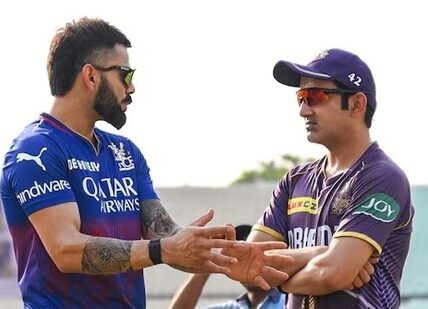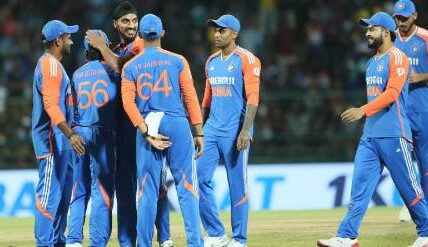“Other Boards Will Wag Their Tails”: Ex Pakistan Star’s Dig At BCCI Over Champions Trophy Row
Introduction
Cricket, often dubbed a gentleman’s game, is not devoid of its fair share of controversies. The latest storm brewing in the cricketing world centers around the Champions Trophy and involves a sharp dig at the Board of Control for Cricket in India (BCCI) by an ex-Pakistan star. The phrase “Other boards will wag their tails” has sparked widespread debate and raised questions about power dynamics in international cricket.
Background of the Champions Trophy
The ICC Champions Trophy, known as the “Mini World Cup,” is one of the most prestigious tournaments in cricket. It was first held in 1998 and features the top eight teams in the world competing in a knockout format. The Champions Trophy is significant because it offers high-intensity matches and showcases the best talent in the cricketing world.
The Role of BCCI in International Cricket
The BCCI is arguably the most powerful cricket board in the world. Its influence extends far beyond India, largely due to its financial clout. The BCCI’s substantial revenue from the Indian Premier League (IPL) and sponsorship deals allows it to wield considerable power in the International Cricket Council (ICC). This dominance often shapes decisions that affect the global cricket landscape.
The Controversy Unfolds
The controversy erupted when a former Pakistan cricket star criticized the BCCI over its handling of the Champions Trophy. The crux of the dispute lies in scheduling conflicts and the BCCI’s perceived arrogance in dealing with other cricket boards. The ex-Pakistan player’s remark that “other boards will wag their tails” highlights the alleged subservience of other boards to the BCCI’s wishes.
“Other Boards Will Wag Their Tails” Explained
The statement implies that other cricket boards are too submissive to the BCCI’s demands. This perceived imbalance of power suggests that decisions within the ICC may be overly influenced by the BCCI, potentially sidelining the interests of other nations. The comment is a stark reminder of the power dynamics at play in international cricket.
Reactions from the Cricket Community
The cricket community has reacted with a mix of support and criticism. Some former players and analysts have backed the ex-Pakistan star, agreeing that the BCCI’s influence needs to be checked. Others, however, argue that the BCCI’s contributions to cricket are invaluable and that its leadership is justified given its financial input.
Impact on India-Pakistan Cricket Relations
India and Pakistan share one of the most intense rivalries in cricket. This controversy has further strained relations, adding to the existing political tensions. Historically, cricket has often been a bridge between the two nations, but this incident may lead to increased animosity and fewer bilateral series.
Media Coverage and Public Opinion
The media has played a crucial role in shaping the narrative around this controversy. News outlets and social media platforms have been abuzz with opinions and analyses. Public opinion appears divided, with fans from different countries taking sides based on national loyalties.
Comparative Analysis of BCCI and Other Cricket Boards
The BCCI operates differently compared to other cricket boards. Its financial muscle allows it to invest heavily in infrastructure and player development. In contrast, many other boards struggle with limited resources. This financial disparity often translates into administrative and operational differences.
Possible Resolutions and Future Outlook
Resolving this controversy requires a collaborative approach. The ICC could facilitate dialogue between the BCCI and other boards to address concerns and ensure fair decision-making. A transparent and equitable scheduling process for tournaments like the Champions Trophy could help prevent future disputes.
The Importance of Unity in Cricket
Unity among cricket boards is essential for the sport’s growth. Collaborative efforts have led to successful global tournaments and the development of cricket in non-traditional markets. Learning from past successes, cricket boards can work together to promote the sport worldwide.
Expert Opinions and Analysis
Cricket analysts suggest that while the BCCI’s influence is undeniable, checks and balances are necessary. Ensuring that all cricket boards have a voice in the ICC can lead to more balanced and fair decisions. Experts also predict that this controversy could lead to reforms in how international cricket is governed.
Lessons Learned from the Controversy
Key takeaways from this controversy include the need for transparency and equitable governance in cricket. Cricket boards must prioritize the sport’s integrity over individual interests. Establishing clear protocols for decision-making can help prevent similar issues in the future.
Conclusion
The row over the Champions Trophy highlights deep-seated issues within international cricket’s governance. While the BCCI’s contributions are significant, it’s crucial for all cricket boards to collaborate and ensure fair play. Moving forward, the focus should be on unity and transparency to uphold the spirit of the game.
FAQs
What is the Champions Trophy?
The Champions Trophy is an international cricket tournament organized by the ICC, featuring the top eight teams in a knockout format.
Why is the BCCI influential in cricket?
The BCCI’s influence stems from its financial power, mainly generated through the IPL and extensive sponsorship deals, which allows it to have a significant say in ICC decisions.
How does this controversy affect the average cricket fan?
For fans, such controversies can be disheartening as they shift focus away from the game itself. It can also affect the scheduling and availability of high-profile matches.
What can be done to resolve such disputes?
Open dialogue facilitated by the ICC and a commitment to transparent, fair decision-making processes are essential steps in resolving such disputes.
How can cricket boards work together more effectively?
Cricket boards can foster better relationships through regular communication, shared goals, and mutual respect, ensuring that the sport’s best interests are always prioritized.









